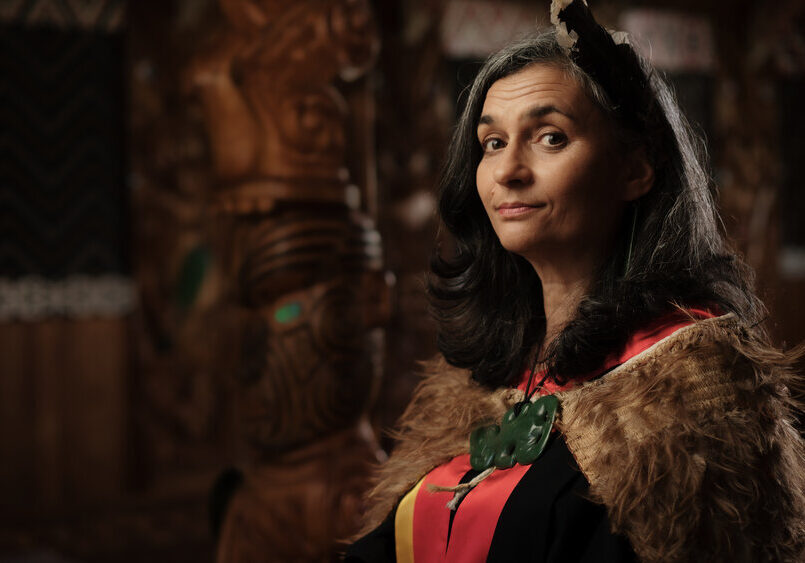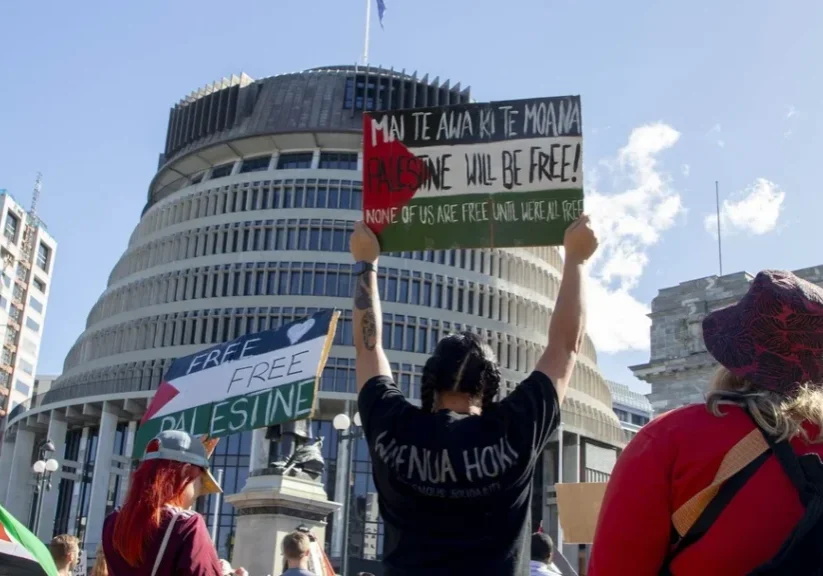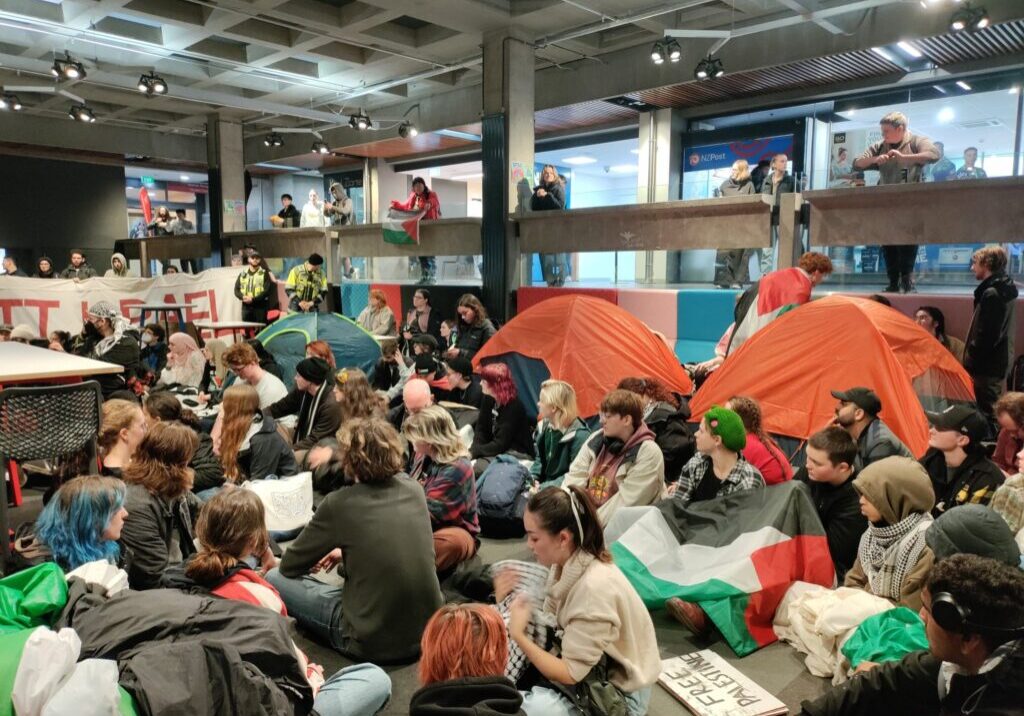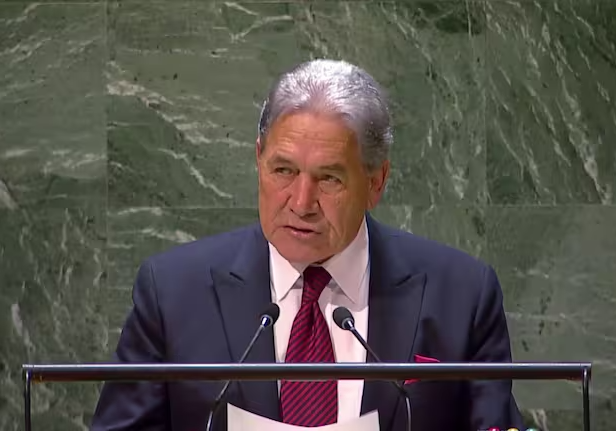Australia/Israel Review
AIR New Zealand: Wellington sets its sights on Mideast Peace
May 28, 2015 | Miriam Bell
Miriam Bell
New Zealand’s battle to secure a non-permanent seat on the United Nations Security Council (UNSC) was long and hard-fought. And with just a two-year term to serve, starting from last January, the country’s foreign affairs officials don’t plan to waste what time they have.
Foreign Minister Murray McCully has committed Wellington to support a greater role for the Security Council in the Middle East peace process, saying, “We have been clear in our view that the situation in the occupied Palestinian territories is not sustainable, and our friendships with Israel and Palestine demand we play a part in helping to find a solution.”
Unfortunately, it appears that the part New Zealand intends to play in pushing the UNSC to focus on Israeli-Palestinian peace risks counter-productively furthering an openly declared Palestinian diplomatic strategy of avoiding negotiations and instead seeking to internationalise the conflict through international organisations.
The Palestinian Authority hopes to get the international community to promise it statehood without the need to compromise or sign a binding peace deal with Israel. In December, it unsuccessfully pushed for a UNSC resolution which would have done just that – it demanded Israel withdraw to the pre-1967 armistice lines within two years, whether or not any peace agreement was reached.
In January, outgoing NZ Permanent Representative to the United Nations Jim McLay – who has since taken up a new role as a Special Adviser to the Minister of Foreign Affairs and New Zealand’s Representative to the Palestinian Authority – told the UNSC that New Zealand was committed to exploring options for the Council to inject new momentum into negotiations, once elections were concluded in Israel. Then, in April, McLay told the Council the time had come for action.
“New Zealand’s friendships with Israel and with the Palestinians motivates us to make a constructive contribution, and to work for progress,” he said. “New Zealand wants this Security Council to focus on a practical outcome – so we have been working on a text that might serve the purpose of getting negotiations started.”
Referring to ongoing French efforts to draft a resolution outlining the terms of Israeli-Palestinian peace – which also serves the Palestinian strategy – McLay said New Zealand didn’t want to complicate the process, implying that it would let France continue to steer the resolution through the drafting period.
For their part, the Palestinians have recognised the importance of securing New Zealand’s support for the resolution they are seeking. At the end of April, Palestinian Foreign Minister Riad al-Malki visited New Zealand with the goal of discussing the resolution with McCully, while McCully is planning a visit to Ramallah and Jerusalem in early June to continue the dialogue.
During his trip, al-Malki also gave a speech at the University of Auckland, introduced by Labour’s foreign affairs spokesman and former leader David Shearer. At the event, Shearer surprised the crowd with the bizarre claim that “We have at the moment a Palestinian state which has been under occupation since 1967”, ignoring the fact that Israel captured the disputed territory from Jordan, and that no Palestinian state had existed there previously.
In any event, there seems little sign that foreign policy architects for either the government or opposition are aware of the problematic and arguably counter-productive context of the current push for a UN Security Council resolution on Israeli-Palestinian peace.
For all McLay’s talk about bringing the parties to the negotiating table, it doesn’t appear to have occurred to him that New Zealand’s strategy could backfire and provide a strong disincentive for the Palestinian side to resume negotiations so long as they can hope that the international community will support their demands without the need to negotiate or compromise.
So far, New Zealand’s initiative at the UN has failed to spark much debate in the local media.
However, Victoria University strategic studies professor Robert Ayson suggested to Al Arabiya news that the push was motivated by a traditional New Zealand tendency to try to mark its international identity through at times politically unconventional stances, and taking up the Palestinian issue was a way to try and announce Wellington’s re-emergence on the world stage.
“I don’t think it’s because there’s a massive groundswell. Israel-Palestine isn’t a big public issue. This is an issue New Zealand can [take up] without too many costs,” he said.
In Ayson’s view, McLay’s address signaled that New Zealand is “coming good” on its promises to demand global action. “I think this is a message to Washington from New Zealand that we think you need to allow the Security Council… a wider approach, not just US-supported negotiations.”
Essentially then, New Zealand’s push could well be motivated by a desire to make a mark on the world stage while occupying a seat on UNSC. While this is understandable, it would be tragic if, through poor analysis or policy planning, this effort ended up undermining rather than promoting the doubtless sincere goal of promoting a lasting, negotiated Israeli-Palestinian two-state resolution.
Tags: Australasia, New Zealand






